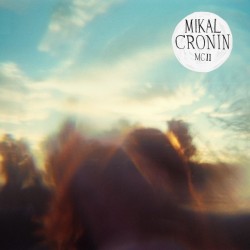Top 50 Songs of 2013

It’s been a marathon rather than a sprint, but we’ve finally made it to the end of 2013, and boy have we listened to a lot of music — so much that there’s probably — no, definitely plenty we left out. But that’s not going to stop us from taking a few days to celebrate the music we loved this year. This week, we’re counting down our Top 50 Songs of 2013, and next week, we’ll reveal our Top 50 Albums of 2013. So get comfortable and join us as we offer our thoughts on the best tracks of the year.
Listen to (almost) all of our favorite songs of the year via the Spotify playlist below.
 50. Deerhunter
50. Deerhunter
“Monomania”
from Monomania (4AD)
Buy at iTunes
Like Bradford Cox’s typical on-stage ensemble of a woman’s dress and wig, part of “Monomania”‘s allure comes from misdirection and deception. The lyrics waver between traditional rock tropes like winning over another person’s heart, to more Cox-ian desires such as isolation at sea. In two consecutive lines Cox describes himself as both a “man” and a “mystery whore.” This quest for identity is particularly tragic for someone as exposed to his own mortality as Cox; as a carrier of Marfan syndrome, lyrics about “a light in the heart that won’t be there tomorrow” are disarmingly blunt. After Cox’s final, white-flag lyric, “let me be released from this,” the only escape is through what he fears most: monomania, the one-track mind that chants the word over and over for the song’s remaining three minutes until it triumphantly, or perhaps mercifully, fades away. – Donny Giovannini
 49. Iceage
49. Iceage
“Wounded Hearts”
from You’re Nothing (Matador)
Buy at iTunes
We heard a lot this year about a so-called “emo revival,” which, translated, amounts to a handful of younger bands who spent a lot of their teenage years listening to American Football and Promise Ring records. But some of the rawest, most visceral emotions came from bands bold enough to push further with even more extreme sounds. Denmark’s Iceage are responsible for some of the most gut-wrenching performances this year — some sexually suggestive and others unexpectedly vulnerable. While in title alone, “Wounded Hearts” would seem the most tender and exposed, once the riffs start up, Iceage are the ones doing the wounding. The thrum of bass that opens the song acts merely to stun, the fierce post-punk melody growing faster and more intense as the song progresses and Elias Rønnenfelt is pushed to the point of hopelessness: “It all comes down the same/In these times of distress.” It’s one of the most tautly constructed pop songs on You’re Nothing, but somehow also one of the most draining. All exorcisms should be this catchy. – Jeff Terich
 48. TV on the Radio
48. TV on the Radio
“Mercy”
(Federal Prism)
Buy at iTunes
After 2011’s low-key Nine Types of Light and the death of longtime bassist Gerard Smith, TV on the Radio returned from their short hiatus with “Mercy,” a glossy uptempo rocker with a catchy chorus and slick production from Dave Sitek. To call it a return to the high octane, high spirits that defined songs like “Halfway Home” would be oversimplifying it. Peel back the sheen of synthesizers and the lyrics are some of the bands darkest. Tunde Adebimpe howls about the pain of losing the love of his life: “And though it’s gone forever / and there’s nothing left to keep / I still can’t scrape the stain / from my soul.” Ostensibly it’s a song about a failed relationship, but the song feels more like an elegy to Smith and a brave step forward for the group. Just before the song ends, it suddenly blossoms, adding layers of shiny synths and euphoric voices. But Adebimpe’s voice still grounds the song: “Have mercy, love, on my life!” he repeats. It’s a moment that’s both heartbroken and euphoric, a feeling of catharsis that exemplifies what TV on the Radio are best at: making even the saddest, darkest emotions seem beautiful.- Sam Prickett
 47. Nick Cave and The Bad Seeds
47. Nick Cave and The Bad Seeds
“Jubilee Street”
from Push The Sky Away (Bad Seed Ltd.)
Buy at iTunes
I’m not really sure what exactly “Jubilee Street” is all about, not sure about why, for instance, Cave’s narrator ends up in his tie and tails with a fetus on a leash, alone, transforming, vibrating, glowing, flying, but I am sure that the place itself, the Jubilee Street composed in the words and music, is a place I have little desire – whether whatever other black-book-carrying Beas still reside there turn out to be femme fatales or golden-hearted hookers – to ever find myself strolling down it. There’s death in this song, a violent death that hangs in every shadow, both destiny and chance, indifferent to one’s taking on the Sisyphean task of getting behind his wheel of love in the morning to practice what he preaches. – Tyler Parks
 46. How To Destroy Angels
46. How To Destroy Angels
“Ice Age”
from Welcome Oblivion (Columbia)
Buy at iTunes
Have you tired of this year’s attempts to make country-sounding electronica? Does that Avicii-Aloe Blacc collaboration drive you as far up a wall as it does me? Is Pitbull and Ke$ha’s “Timber” not doing it for you? Maybe you missed or forgot about this seven-minute slow-burn epic from the start of the year, which HTDA put on both their taster EP An Omen and their proper Welcome Oblivion album. Trent Reznor and his players merge moody synthetic washes with guitars filtered to the point of sounding like banjos, as his wife Mariqueen coos to the ocean to fulfill her death wish. It’s part Laurel Canyon, part campfire ghost story. – Adam Blyweiss
 45. Janelle Monáe
45. Janelle Monáe
“Givin’ ‘Em What They Love” [feat. Prince]
from The Electric Lady (BadBoy)
Buy at iTunes
Nobody pilfers with as much authenticity as Janelle Monáe. The unusually stark, opening wind-up from her hazy second album The Electric Lady is a lean refraction of David Essex’s “Rock On,” a well-meaning bit of braggadocio with the modesty to let its riff breathe and the audacity to call Prince for back-up. “Givin’ ‘Em What They Love” marks a little bit of a stance change for Monáe: Where her voice in the past mostly sounded wedged in to fit seamlessly with the details of her pastiche, this song starts with her in tentative assertion mode, gathering steam as the piece moves on. Then Prince serves as torch-passer in verse two, allowing her to break out in rasp and fire towards the end. For an artist whose microscopic attention to detail made for some of the most pleasantly dense R&B music of the last few years, Monáe proves that she can say just as much in deconstructive mode as well. Not necessarily good news for androids, but certainly encouraging for the rest of us mechanics. – Paul Pearson
 44. Mikal Cronin
44. Mikal Cronin
“Weight”
from MCII (Merge)
Buy at iTunes
Ever dread going to work, going to school, or being uncontrollably thrust into a new chapter of your life? Of course you have — uncertainty can be a burden on one’s mind, and Mikal Cronin’s “Weight” is a perfect song on the matter. The opener to his fantastic sophomore album is not only an affecting pop song, but one full of familiar and nostalgic indie sounds, beautifully arranged with a subtle dose of pop genius. The soft piano melody and warm musing voice of Cronin brings a kindred spirit to loathing what lies ahead. “I’ve been starting over for a long time/ I’m not ready for another day I fail at feeling new.” Vocally “Weight” is warm and emotionally uplifting, and musically it’s powerful with a rocking juxtaposition of soft acoustic and loud electric noise. Cronin’s garage roots complement his new musical approach quite well in MCII, and his earnestness only heighten its beauty. – Dan Pritchett
 43. Julia Holter
43. Julia Holter
“Maxim’s I”
from Loud City Song (Domino)
Buy at iTunes
Although “Maxim’s I” was inspired by a particular scene from Vincente Minnelli’s film of Collette’s Gigi, and Julia Holter considers this scene the conceptual heart of her album, Loud City Song, I tend to think of this particular piece as the soundtrack to certain dimensional passages, the dimension entered into being one where outside and inside lose their distinction and birds congregate amongst the cheese plates arranged carefully along conifer branches beside flutes of white wine, while the immaculately clad young woman, whose features fixate the audience gathered within the outside, huddles in her slow, assured dance sequences in the halo of warmth given of by an aged cast iron stove. It’s pleasant, pleasant simply, to float with the organ chords and imagine David Byrne on amyl nitrate tripping out to the high-end hiss of cymbals that opens and closes this quaint little portal. – Tyler Parks
 42. Forest Swords
42. Forest Swords
“The Weight of Gold”
from Engravings (Tri Angle)
Buy at iTunes
As has been the trend with a handful of artists on Tri Angle Records, the only vocals on “The Weight of Gold” are indiscernible, drenched in distortion, and broken to pieces. Although it would feel weird “singing along” with what’s basically gibberish, it’s easy to take pleasure in a familiarity with the cries — anticipating the more desperate sections and staying in sync with each glitch. The vocals can’t be defined, but they still carry an emotional heft that occupies the booming tribal overtones and wood-on-wood percussion. Almost two minutes in, “Weight of Gold” takes reverberated turn towards classic dub sounds, but instead of calming or relaxing the mood, the thick bass is a molasses that lets the song’s other elements catch up and engulf the listener. While “heavy” is often associated with high-speed riffs, “Weight of Gold” pounds hard at its own methodical pace. – Donny Giovannini
 41. Thee Oh Sees
41. Thee Oh Sees
“Minotaur”
from Floating Coffin (In the Red)
Buy at iTunes
After spending most of Floating Coffin thrashing about with melodic and high-energy garage rock, John Dwyer slows things down for the closing track, “Minotaur.” While most remember the Greek creature for its human body and bull head, Dwyer focuses on its trapped existence in a maze; a struggle he relates to the modern dilemma of keeping a dull job for the money and nothing else. Dwyer, who wasn’t living off his art until age 35, describes the drudgery of uninspired work as a nausea for which the only cure is to “stay away, without pay.” In a time when many artists focus on the inequality and hardship that comes with unemployment, “Minotaur” sympathizes with the working class heroes who “sleep in the maze,” holding out hope for the dreams that could be. – Donny Giovannini

